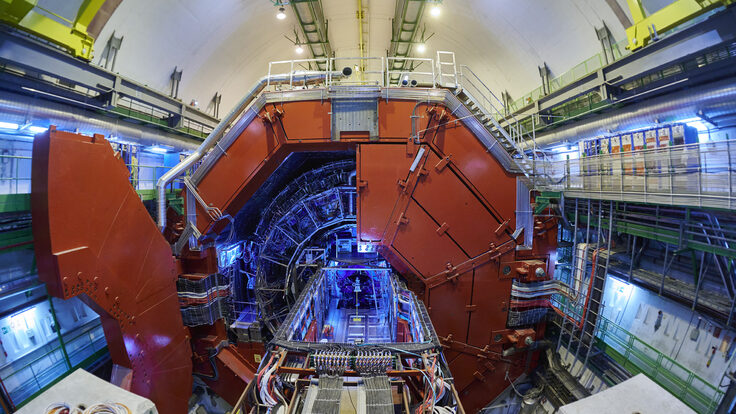For more than 40 years, physicists and researchers looking for literature in particle physics have relied on the iconic SPIRES particle-physics database. Developed at SLAC, SPIRES was the first database available on the web (and the first website in North America), providing access to all high-energy-physics scientific papers. This included both preprints and their final published versions, as well as theses, reprints and conference proceedings.
Now, the next generation of SPIRES, called INSPIRE, is online and operational thanks to four major laboratories: CERN, DESY, Fermilab and SLAC. INSPIRE is not only faster than its predecessor, but also offers several new features including more detailed reference lists and the ability run full-text searches that include figure captions. In addition, INSPIRE is interactive: users can now improve the database by verifying their own publications and correcting references as needed. It also takes advantage of social media; the Twitter feed and INSPIRE blog are a good way to follow what’s added in real time.
The team plans to further enhance the database by adding personalized features such as paper claiming, which will allow authors to display all their papers on a single page—helping avoid confusion in cases where two John R. Smiths publish papers in similar fields, for instance, or a researcher changes his or her name.
INSPIRE is complementary to the well-known online scientific literature repository arXiv, which contains preprints, published papers and revisions of peer-reviewed papers in high energy physics as well as mathematics, computer science and several other scientific areas. Instead of duplicating information, INSPIRE links to papers already stored in arXiv while adding public notes and corrections, author names and affiliations, and—one of the “wow factor” features—where and when it’s been presented at conference, who published it, and where and when it’s been cited: in effect, the history of the scientific paper. Essentially, INSPIRE provides metadata around papers already included in arXiv as well as around theses, reprints and conference proceedings not stored in arXiv.
In addition to being a great resource for scientists, Sullivan adds, INSPIRE is a boon to science literacy. For example, science educators can use it to teach students about the process of discovering and sharing scientific information by having them track the history of a paper—when it was published, when and where it was presented at a conference, and what corrections were made, if any.
In all, INSPIRE’s designers hope it will serve as a powerful and effective tool for generations of scientists to come.
Note: An earlier version of this story incorrectly stated that the technology platform Invenio was created by the INSPIRE collaboration. In fact, Invenio was originally developed at CERN to run the CERN document server.







